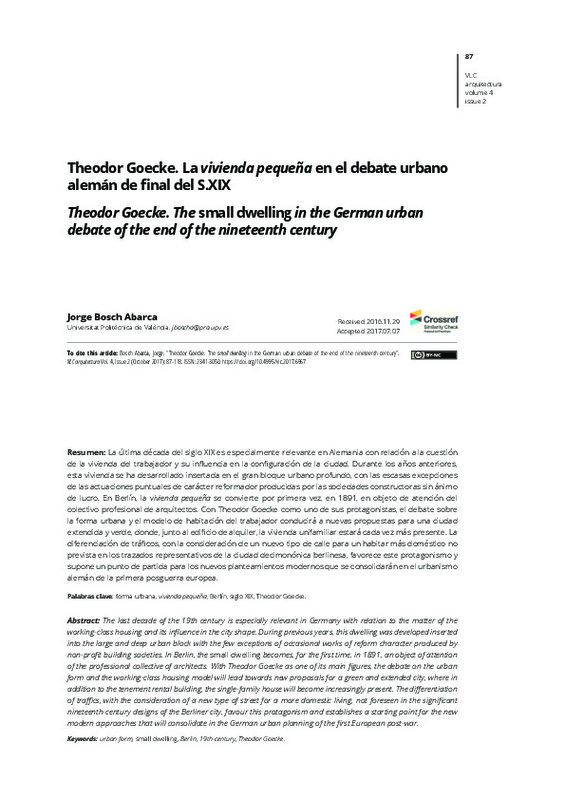JavaScript is disabled for your browser. Some features of this site may not work without it.
Buscar en RiuNet
Listar
Mi cuenta
Estadísticas
Ayuda RiuNet
Admin. UPV
Theodor Goecke. The small dwelling in the German urban debate of the end of the nineteenth century
Mostrar el registro completo del ítem
Bosch Abarca, J. (2017). Theodor Goecke. The small dwelling in the German urban debate of the end of the nineteenth century. VLC arquitectura. Research Journal. 4(2):87-118. https://doi.org/10.4995/vlc.2017.6967
Por favor, use este identificador para citar o enlazar este ítem: http://hdl.handle.net/10251/90293
Ficheros en el ítem
Metadatos del ítem
| Título: | Theodor Goecke. The small dwelling in the German urban debate of the end of the nineteenth century | |
| Otro titulo: |
|
|
| Autor: | ||
| Entidad UPV: |
|
|
| Fecha difusión: |
|
|
| Resumen: |
[EN] The last decade of the 19th century is especially relevant in Germany with relation to the matter of the working-class housing and its influence in the city shape. During previous years, this dwelling was developed ...[+]
[ES] La última década del siglo XIX es especialmente relevante en Alemania con relación a la cuestión de la vivienda del trabajador y su influencia en la configuración de la ciudad. Durante los años anteriores, esta vivienda ...[+]
|
|
| Palabras clave: |
|
|
| Derechos de uso: | Reconocimiento - No comercial (by-nc) | |
| Fuente: |
|
|
| DOI: |
|
|
| Editorial: |
|
|
| Versión del editor: | https://doi.org/10.4995/vlc.2017.6967 | |
| Tipo: |
|









